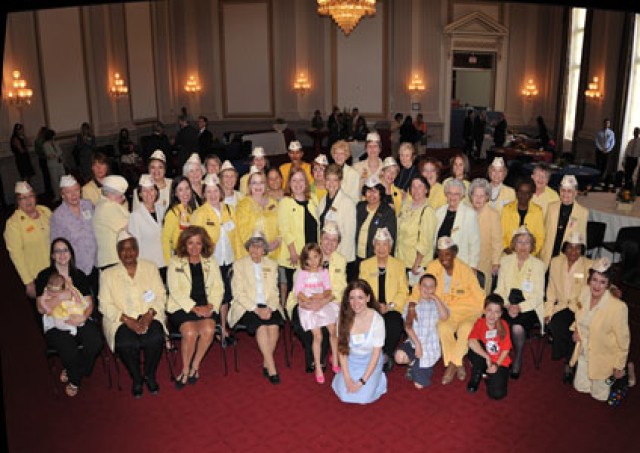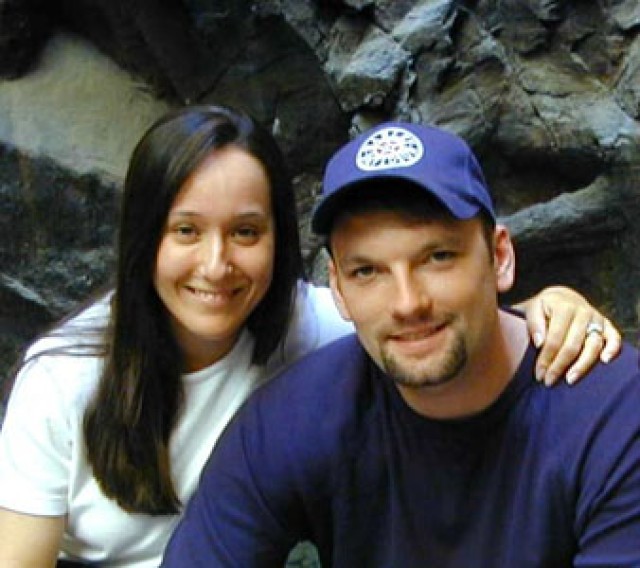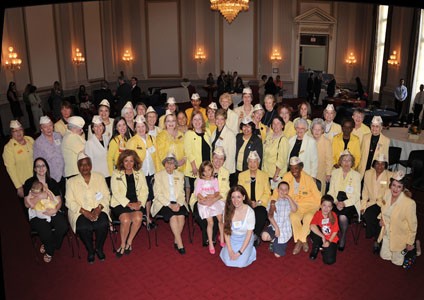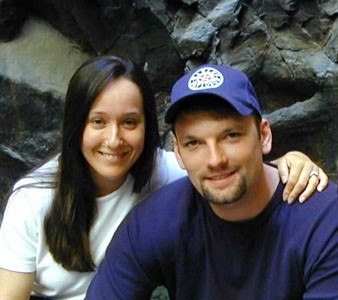Thanksgiving evening many Americans will gather around the table to take turns with family and friends, expressing what they are thankful for. Many families will convey their heartfelt gratitude recognizing the sacrifices of those serving our country.
For some families, that sacrifice comes in the form of an empty seat, a place setting for a loved one who gave his or her life to protect the freedoms Americans enjoy. Few organizations exist that know about that sacrifice more intimately than the Gold Star Wives of America.
Gold Star Wives of America, Inc., is a Veterans Service Organization for widows and widowers whose spouses died on active duty or as the result of a service-connected cause.
The primary purpose of GSW is to provide service, support and friendship to the widows and widowers. Kimberly Hazelgrove joined a year after her husband was killed when his OH-58 Kiowa Warrior helicopter crashed on its way back from a combat mission near Mosul in northern Iraq.
"My husband was killed in January of 2004. I was still active duty at the time. We were stationed at Fort Drum, N.Y." Hazelgrove said. "I came to Lorton with a one-year-old and a three-year-old."
"At the time, we couldn't live on the base." GSW Potomac Chapter President Helga Knapp said things have changed. Just a few years ago, spouses were not allowed to stay on base, and had to leave six months after the death of the servicemember. Now, families can stay for a year and can file claims to stay longer.
"Belvoir really supports us. We feel welcome here. We feel appreciated," Hazelgrove said. "Not that there isn't more that needs to be done. The Army is not accustomed to taking care of its surviving families, but Belvoir does that well." During the move to Lorton, Hazelgrove had to overcome many challenges.
"I lost a lot of money," she said. "Trying to move here with two small children, I didn't have the assistance to get them enrolled in child care. I had to find the hospital on my own."
"Now, Belvoir, and the Army, in general, has Survivor Outreach Services to assist with that," Hazelgrove said. Hazelgrove, who served nine years in the Army, said, "I've resisted what they told me when my husband died, that I needed to move on." In fact, she did the opposite.
"My kids go to Belvoir Elementary and get seen at DeWitt. They are in youth sports. I shop at the commissary. I don't even go anywhere else," Hazelgrove said. "We are very involved in Belvoir's community."
"I chose to keep them in the military culture. They shouldn't shy away from military service because their father was killed. I didn't want them raised without being able to see someone in uniform and appreciate it," Hazelgrove continued. "It's a part of who they are, and they are a part of it."
"It's a connection, something you have been doing for years," said Eva Golleher, first vice president of the Potomac Chapter. Golleher is a Vietnam War widow. Her husband was killed in 1975, and she joined GSW in 1978. She was a manager at Belvoir's PX. Customers recommended the organization to her. "My husband served 30 years in the Army," Golleher said.
"He was in intelligence, and was the most handsome man you've ever put your eyes on. GSW is about reaching out and caring about other people. It's not because you went through it, it's because you want to help," she said.
One of the priorities of the chapter is to get in touch with spouses who are unfamiliar with the organization. "My children were already grown, but, now, I notice [the members] are all young widows," Golleher said.
"Unlike Kimberly, who has served, and can navigate military channels, these spouses have not. They don't know where to go, what paperwork to fill out, or who to talk to." Hazelgrove said GSW provides invaluable help navigating forms and understanding requirements and laws.
The organization provides her constant and appropriate legislative updates, she said. Agent Orange is an example of an important legislative update. "Claims that were originally rejected can now be resubmitted to the VA," Knapp said. Knapp has experience with the effects of Agent Orange. "My husband, Russell M. Knapp - M for Milton or magnificent - worked in CID," Knapp said.
"He died of multiple sclerosis, but also developed some tumors from Agent Orange. At the time, I worked here at Belvoir in the Public Affairs Office. Russell was sick for a very long time, but it didn't make it any easier." GSW supports spouses emotionally, socially, and with resources.
"There isn't a lot of red tape," said Hazelgrove. "If one of our ladies calls the VA or the Secretary of the Army's office and says 'we have this person, who needs this kind of assistance,' we aren't asked to fill out 10 forms. GSW meets the timely needs of the family. At a certain point, people go back to their own lives, and the support of even your own family fades away. Units go back to their own lives, friends go back, and then, you're alone. "
That doesn't happen with this organization," Hazelgrove said. GSW is trying to get the word out to spouses that it exists. "We hate to see new members join, but that's a part of military service that will never go away. We are thankful there aren't as many members as there have been in the past," Hazelgrove said.
The challenges over the years have changed for each generation. The Army has changed to an all-volunteer Army, to include Reserve and National Guard. "During Vietnam, everyone was active-duty. We lived in the same place," Knapp said. "Now, they come from small towns and don't have that support. It's hard to get the word out to them."
"We want them to know they have resources available." Hazelgrove said GSW helped give her a purpose and greater understanding. "Things happen for a reason."
"I am who I am today because my husband died. I'm the mother I am today; I'm the person I am today, because I had these challenges to overcome. The gratification I get when I'm able to help someone else out - there's a purpose," she continued. "Some survivors choose to stay in and never come out, and feel pain for years. Others choose to live."
Hazelgrove decided to honor her husband by choosing to live and help others. "People are always looking for a reason. Not necessarily why did this happen to him, why did this happen to me' What did I do in my life to deserve to be a single mom and have my husband die' Well, now I know why," Hazelgrove said.




Social Sharing